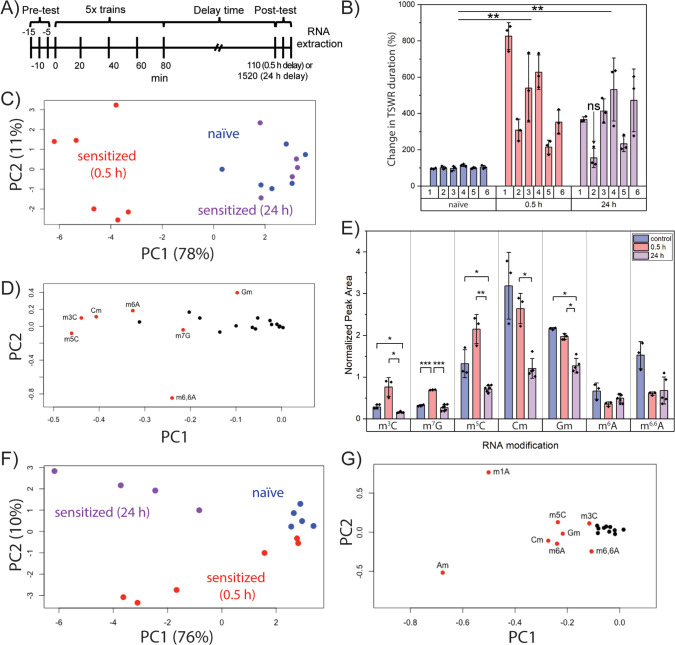Figure 2.
Unique RNA modification profiles in the pedal ganglia for naive and sensitized animals. (A) Behavioral timeline for sensitization of Aplysia tail-elicited siphon withdrawal reflex (TSWR). (B) Comparison of TSWR duration for representative cohorts, each consisting of six animals that were assayed 0.5 or 24 h post-training or were naive to electrical shock. Error bars are ±1 SD, (ns) indicates an animal that did not show a statistically different mean TSWR duration. ** indicates a significantly different (p < 0.005) mean TSWR duration compared to naive Aplysia (unpaired t test). (C) PCA score and (D) loading plots of 20 RNA modifications in the pedal ganglia of naive or sensitized animals (0.5 or 24 h post-training). (E) Quantities of select RNA modifications in the pedal ganglia of sensitized and naive Aplysia. Error bars are ±1 SD. Unpaired t test, Bonferroni correction: * p < 0.05, ** p < 0.005, and *** p < 5 × 10–4. (F) PCA score and (G) loading plots of 18 RNA modifications in the cerebral ganglia of trained and untrained animals.

